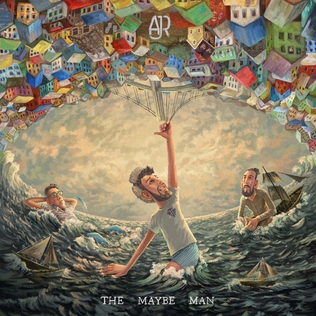-
FILM STUDENTS DOCUMENT VALUABLE ASPECTS OF COMMUNITY
By Piper Beardsell
Whether students are interested in film or not, the new Documentary Filmmaking elective will open opportunities, new skills, friendships, and fun for those who join this class.
Masco’s Documentary Filmmaking class was created by English teacher Michelle Siden, and as hoped, it has made a huge impact on the students who decided to take a chance on it.
“I had no interest in film or that area, but after taking this class, I really do have a new appreciation for all that goes into filmmaking,” said senior Sanah Tokhi.
From watching and analyzing all different types of documentaries to making their very own, this elective was more than a rewarding experience for the students involved.
“I had no idea we would be able to make our documentary that good. Everything we were taught and all the help from Mrs. Siden created something we are very proud of,” said senior Paige Mason.
Before being able to create their very own documentary, students learned behind the scenes techniques and just how important attention to detail is. While learning camera angles, how to set up shots, b-roll, and sound bites, students got their hands on cameras and microphones for lots of practice.
“I got to explore something I've never had the opportunity for, and I had so much fun learning how to use a camera and the different techniques. Practicing in small groups allowed us to work well together, and there was lots of laughing,” said senior Lauren Lee.
Students watched a variety of documentary styles and practiced techniques. While filming different assigned objectives with the camera, students got to get a feel for editing next as they spliced together their b-roll creating playful final products to share with the class.
With an overall introduction to documentaries, filming, and editing, students were assigned to make their own 60 second documentary about something meaningful to them.
From concerts and field hockey to siblings, pets, and even made up personas, students used their creativity while taking on the tedious time limit of 60 seconds.
“I never realized how much work went into only 60 seconds; even with that challenge it was really fun,” said senior Cammi Wayland.
With their own short documentaries under their belt, the class was then assigned a bigger project that would take them until the end of the semester..
“I was inspired by PBS NewsHour’s Student Reporting Labs as I assigned groups to work within a category to make a documentary,” said Siden.
Some of the categories included were “Ready for the real world,” “Statues, symbols, and stories,” and “Music, dance, and community and culture.”
Each group had to brainstorm what they wanted to shed light on and a local story they could tell with meaning. Once finalized, they created a pitch to present to the class, overviewing what their documentary would be about and its purpose.
After lots of discussion and critiquing, each group was able to decide on their final documentary topic and begin the hard work of creating it.
“It got really exciting when we began to go out and film and also interview everyone for our documentary. Getting tons of b-roll was a really fun process,” said senior Gabby Saitta.
Not only did students have to collect more shots than they could imagine, but they used all the techniques they learned when interviewing people.
“This class didn’t force us to stay in the classroom and just listen, we got to go out and experience and experiment with it ourselves,” said senior JT Mroczek.
As they collected footage, they printed out the text from interviews and transcribed it to later cut it up and physically place sentences together to create the order of their documentary.
“I really loved how Siden had us do this. It gave us a physical visual and was really helpful to piece together our ideas,” said senior Lauren Lee.
As they transcribed they also formed ideas for voice over and practiced throughout class where they would place it to transition from topic to topic and find flow.
Through this new experience, students had a teacher full of knowledge and support who wasn’t afraid to pull the best out of students.
“Siden always pushed me to be my best self,” said senior Miles Rice.
Not only did students create a bond with one another, they created a bond with Siden who gave them an extremely welcoming and fun environment.
“This is my second year having her, and I hope that everyone gets to experience having a soul as kind as hers for a teacher,” said senior Paige Mason.
Always smiling and spreading encouragement, her hard work began to pay off as the documentaries were truly coming together and getting finalized.
“I continue to be so proud of all of these students for working so hard,” said Siden. “They worked collaboratively, getting out of their comfort zones in numerous ways. They interviewed strangers, learned to use new equipment, and improved their writing, editing, and communication skills. I am beyond impressed.”
To celebrate their hard work, Siden and her students organized a film festival to screen each of the group’s documentaries and their individual 60 second documentaries. Family, friends, and teachers were invited to this evening event to experience this “red carpet” showing which had a great outcome.
“It was a really cool experience seeing all the hard work they put into it. It showed how their work paid off and they were really enjoyable and fun to watch,” said senior Riley Campbell.
Only support and compliments were spread through the room after the event, and everyone couldn’t have been more proud of one another.
As hard as it was to say goodbye to the class at the end of the semester, students most definitely will not forget it and will carry with them the new skills and memories made.
News
Opinion
Entertainment
-
Thanks for visiting our digital publication!
Return every Friday for new features, reviews, opinions, sports coverage and more.

Got news? Got feedback?
We'd love to hear from you!
Email us!












